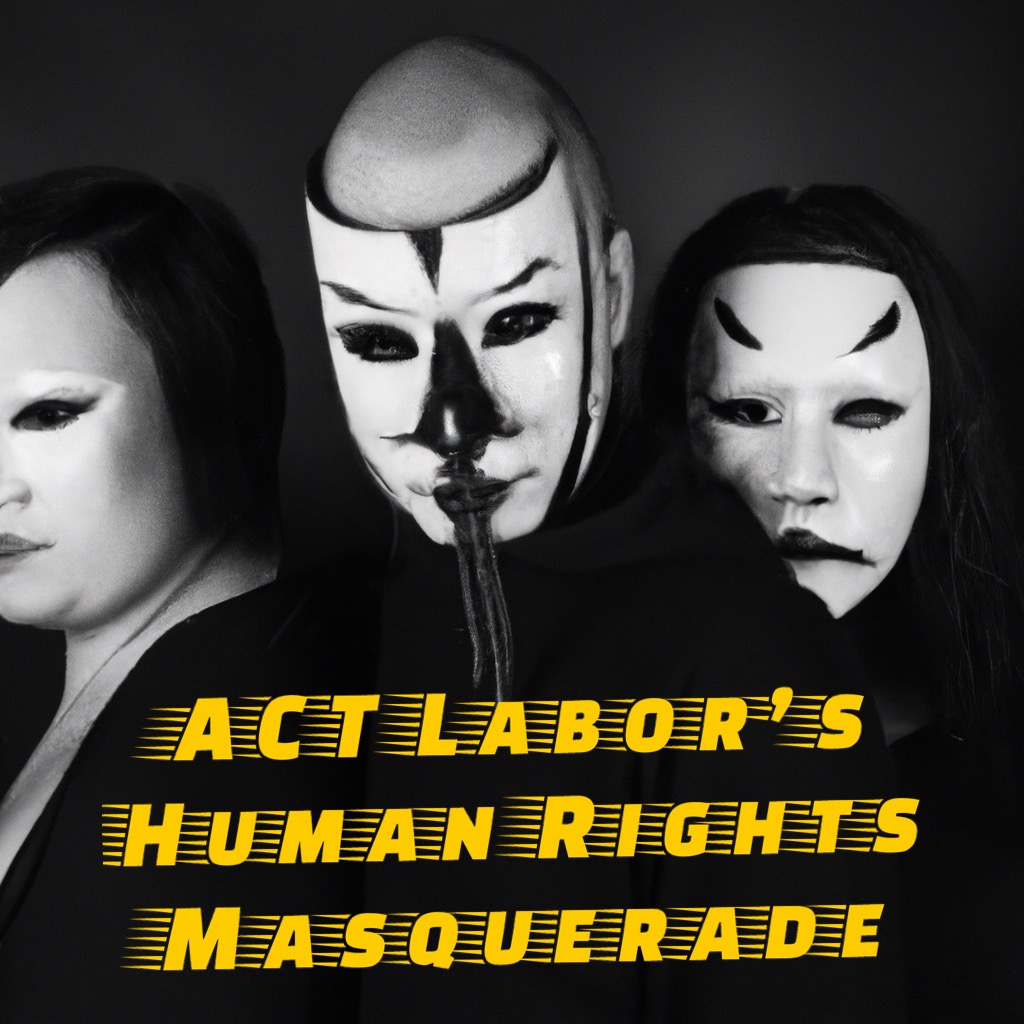In recent years, the Australian Capital Territory (ACT) has been home to a series of labor chief ministers who have publicly championed human rights, yet their actions often tell a different story. Jon Stanhope, Katy Gallagher, and Andrew Barr have all positioned themselves as advocates for human rights, but a deeper examination reveals a troubling pattern of hypocrisy, particularly in their handling of serious allegations within the ACT Department of Treasury.
Jon Stanhope, once heralded as a leading human rights crusader in Australia, appears to have turned a blind eye to egregious misconduct when it involved individuals within his own party. A particularly alarming case involves Mr. Angel Marina and Ms. Tu Pham, who allegedly conspired to undermine the position of Mr. Mullins, the most senior Indigenous employee in the department. This situation raises critical questions about the integrity of leadership and the genuine commitment to human rights principles.
The background of this incident is as follows: Mr. Marina, fueled by a personal vendetta against Mr. Mullins, who he deemed “inferior,” sought to have him removed from his position. Simultaneously, Ms. Pham faced scrutiny for her handling of complaints regarding Mr. Marina’s alleged racism. Rather than addressing these serious concerns with the impartiality expected of her role, Ms. Pham opted to act in self-interest, disregarding the principles of fairness and equity that are supposed to underpin our public service.
Compounding this issue is the fact that Ms. Pham had received legal notice indicating that she could face claims before the Human Rights Commission—not for direct racism, but for her incompetence in addressing Mr. Marina’s behaviour. Instead of taking proactive measures to rectify her shortcomings, she chose to align herself with Mr. Marina, ultimately leading to the dismissal of Mr. Mullins under dubious circumstances.
Katy Gallagher the former Chief Minister between Stanhope and Barr, and Andrew Barr, the current chief minister, are not without fault in this narrative. They are fully aware of the allegations surrounding Mr. Marina’s submission of a false public interest disclosure, which was a strategic move to oust Mr. Mullins. It is equally concerning that Ms. Pham acted upon this disclosure as if it were legitimate, despite the clear conflict of interest and her own apprehended bias. This raises a critical issue: how can we trust leaders who are willing to overlook serious ethical breaches when it serves their interests?
The reality is that the commitment to human rights espoused by these leaders crumbles when their own interests are at stake. The integrity of our public institutions relies on the unwavering application of human rights principles, particularly when it comes to protecting the most vulnerable members of our community. The actions of Stanhope, Gallagher, and Barr suggest a willingness to prioritise political expediency over genuine accountability and justice.
As citizens, we must hold our leaders accountable for their actions. It is imperative that we demand transparency and integrity in governance, particularly when it comes to the treatment of Indigenous Australians and other marginalised groups. The time has come for a reckoning—a moment where we insist that our leaders live up to the values they profess to uphold.
The hypocrisy displayed by the former and current labor chief ministers of the ACT is a stark reminder that rhetoric about human rights must be matched by action. It is not enough to claim allegiance to these principles; true leadership is demonstrated through accountability, integrity, and an unwavering commitment to justice for all. The people of the ACT deserve better, and it is our responsibility to ensure that we advocate for a future where human rights are not just a talking point but a lived reality for everyone.

